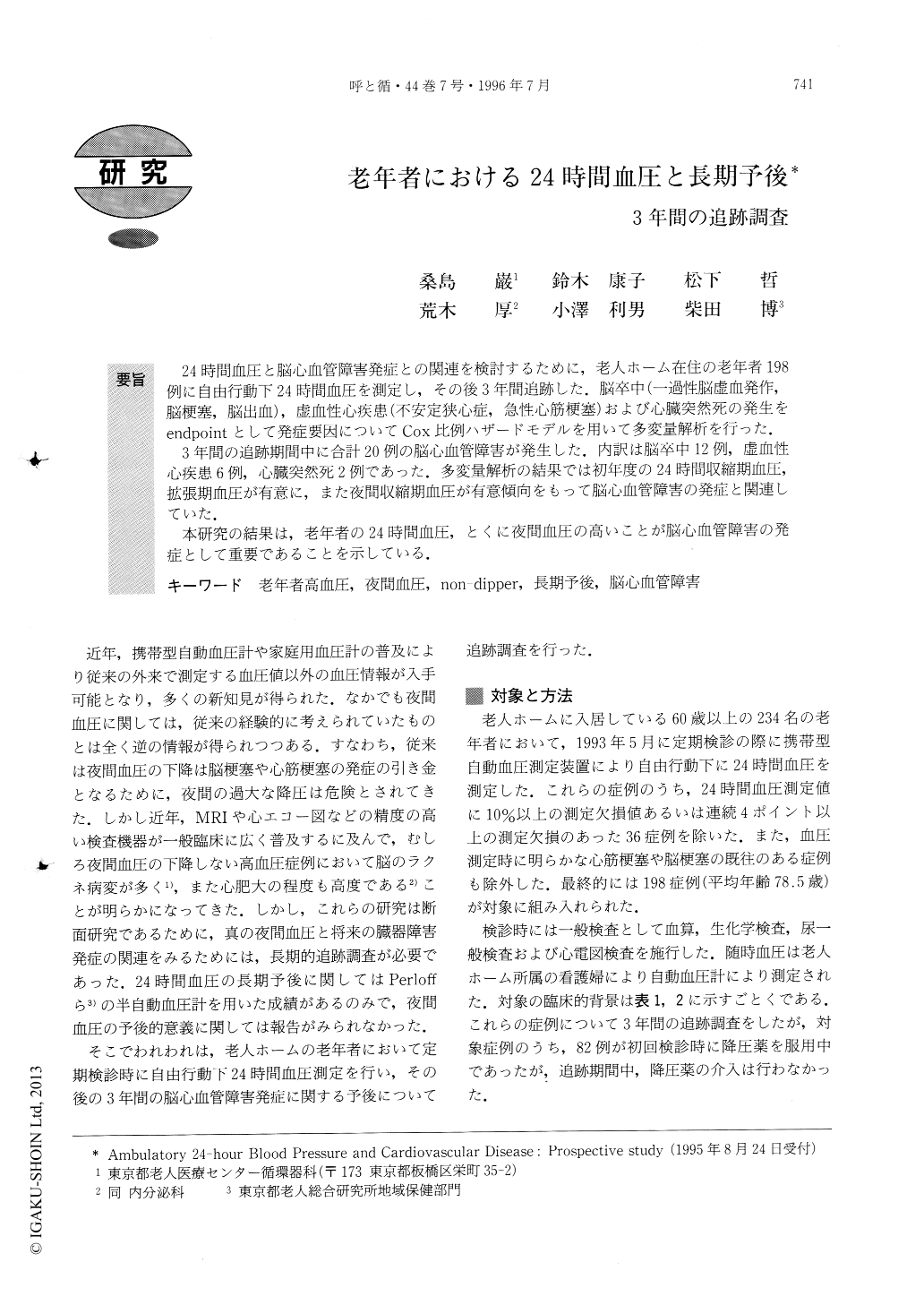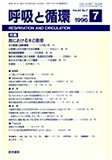Japanese
English
- 有料閲覧
- Abstract 文献概要
- 1ページ目 Look Inside
24時間血圧と脳心血管障害発症との関連を検討するために,老人ホーム在住の老年者198例に自由行動下24時間血圧を測定し,その後3年間追跡した.脳卒中(一過性脳虚血発作,脳梗塞,脳出血),虚血性心疾患(不安定狭心症,急性心筋梗塞)および心臓突然死の発生をendpointとして発症要因についてCox比例ハザードモデルを用いて多変量解析を行った.
3年間の追跡期間中に合計20例の脳心血管障害が発生した.内訳は脳卒中12例,虚血性心疾患6例,心臓突然死2例であった.多変量解析の結果では初年度の24時間収縮期血圧,拡張期血圧が有意に,また夜間収縮期血圧が有意傾向をもって脳心血管障害の発症と関連していた.
本研究の結果は,老年者の24時間血圧,とくに夜間血圧の高いことが脳心血管障害の発症として重要であることを示している.
We followed-up 198 elderly (mean age of 78.5 y.o.) whose ambulatory blood pressures were measured and the relationship between 24-hour blood pressure and the development of cardiovascular disease was investigat-ed.
Ambulatory blood pressures were measured using ABPM 630 every 30 minutes for 24 hours at the annual health check-ups in May, 1990. Endpoint was defined as development of cardiovascular disease, cardiac sudden death and stroke. Cox proportional hazard regression analysis was conducted to determine the contributing factor of ambulatory blood pressure to the endpoint. During the 3-year following-up period, cardiovascular events were documented in 20 cases of the 198 individ-uals (12 strokes, 6 ischemic heart attacks and 2 sudden cardiac deaths). Stepwise multiple Cox regression anal-ysis revealed that both the baseline 24-hour systolic (relative risk [RR], 1.5, p=0.07) and the diastolic blood pressure (RR 1.6, p=0.04) and nighttime systolic blood pressure (RR 1.5, p=0.07) were independently predic-tive of the development of cardiovascular diseases.
We concluded that elevated nighttime blood pressure might be associated with future onset of cardiovascular disease.

Copyright © 1996, Igaku-Shoin Ltd. All rights reserved.


